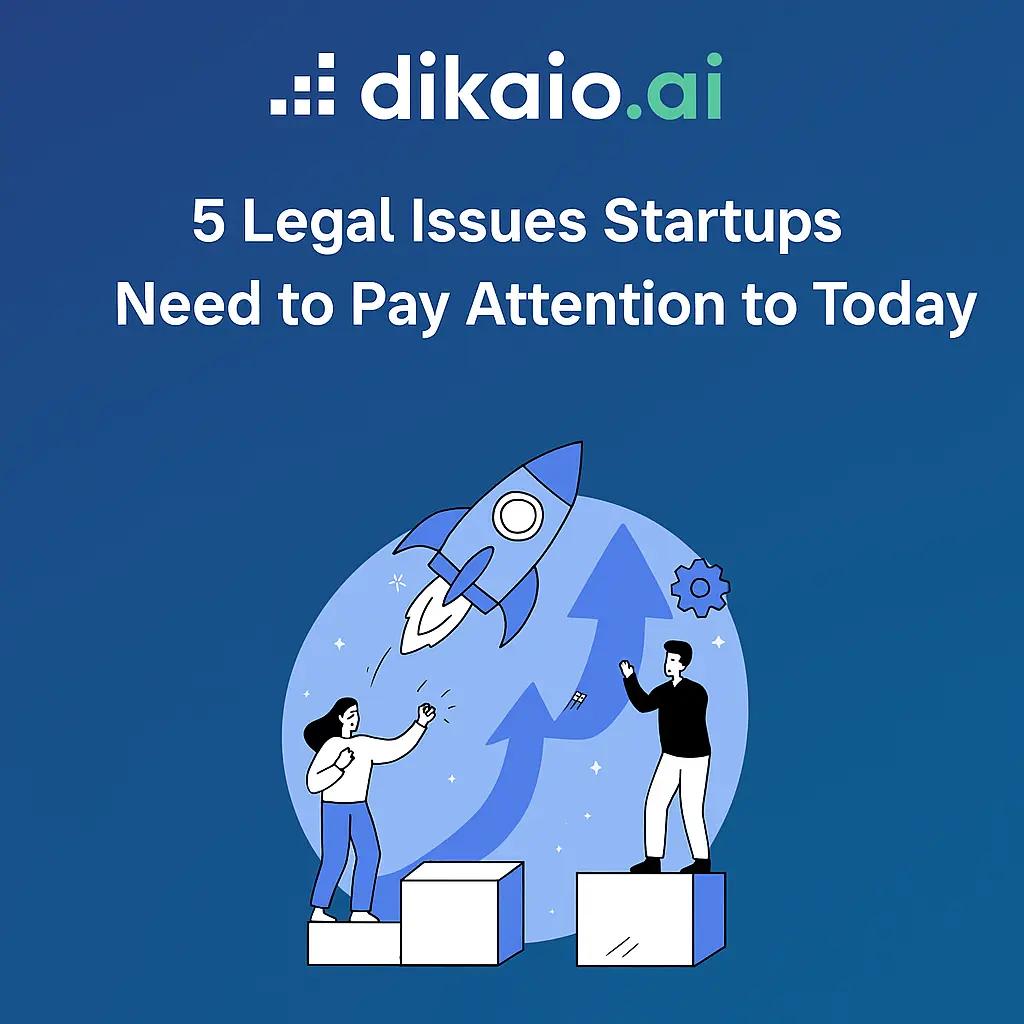
5 Key Legal Issues Startups Need to Watch Out For: A Guide to Greek Laws for Startups
Greek startup laws have evolved significantly in recent years, creating a more friendly environment for new businesses. However, legal compliance remains a challenge for many entrepreneurs. At Dikaio, we have identified and documented the most common mistakes that can cost a young company dearly.
1. Wrong Choice of Business Structure: What Startup Laws Provide
The corporate structure of a startup in Greece forms the foundation of every successful business. The choice of form (PC, SA, GP, etc.) is often made hastily, without considering future growth, investment needs, or tax implications. The new, more favorable startup laws have introduced the Private Capital Company (PC), which offers more flexibility than the traditional Limited Liability Company.
However, many founders choose the wrong legal startup form without understanding:
- The tax obligations of each form
- Capital increase procedures
- Share transfer restrictions
- GEMI (General Commercial Registry) obligations
Greek legislation now allows a minimum capital of €1 for PCs, but drafting the articles of association requires specialized legal advice.
2. Intellectual Property and Critical Overlooked Laws
The core of every new business is its product: the code, brand, UI/UX assets, and trade secrets. Intellectual property protection is governed by specific startup laws.
The most common oversights include:
Trademarks
Trademark registration is mandatory for brand protection. Many startups delay this process and face legal disputes later.
Code Copyright
Legal compliance requires clear agreements with developers that determine code ownership.
Domain Names
Registration of .gr domains is governed by specific rules of the Foundation for Research and Technology.
3. Employment Law and Contracts: What Greek Startup Legislation Provides
Greek startup laws have introduced flexible employment forms, such as:
- Part-time contracts with extension possibilities
- Stock options for employees (with special tax treatment)
- Vesting schemes for co-founders
However, many startups neglect drafting employment contracts that include:
- Confidentiality clauses (NDA)
- Non-compete clauses
- Intellectual property rights determination
4. GDPR and Data Protection: Mandatory Legal Compliance
The processing of personal data is subject to the provisions of the General Data Protection Regulation (GDPR). The protection of this data is governed by GDPR and Law 4624/2019.
Mandatory Measures:
- Personal data protection policy
- Register of Processing Activities
- Data Protection Impact Assessment (where required)
- Data processor agreements
Important: GDPR fines can reach 4% of annual turnover, which can be devastating for a startup.
E-commerce Compliance
Startups selling online must comply with Law 2251/1994 for consumer protection.
5. Startup Funding: Legal Requirements You Shouldn’t Ignore
Greek startup laws have created a favorable framework for investments in new businesses:
- Law 4541/2018: Established the Business Angels regime with tax incentives
- Equifund: The state co-investment program that requires specific corporate structure
Due Diligence
Investors examine:
- Share capital cleanliness
- Tax legislation compliance
- Completeness of corporate books
- Agreements with co-founders and employees holding strategic positions in the company
Why Early Legal Consulting is an Investment
Legal compliance is not a luxury but a necessity that requires specialized knowledge.
Cost of Non-Compliance:
- Fines from regulatory mechanisms
- Loss of investment opportunities
- Legal disputes with partners
- Risk of losing intellectual property
Benefits of Early Preparation:
- Faster access to funding
- Reduced legal risk
- Better terms with investors
- Stronger brand protection
Greek legislation is constantly evolving. Only with experienced legal guidance can a startup fully leverage the opportunities offered by modern startup laws and avoid costly mistakes that can limit its growth.
On the other hand, finding relevant laws, drafting contracts, and monitoring the processes with which a company must comply require significant time and effort from legal professionals. The solution offered by dikaio.ai dramatically reduces the time spent finding sources and drafting legal documents.

